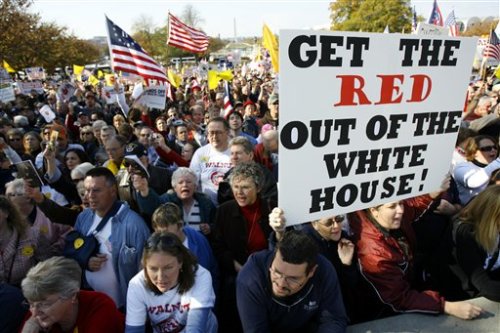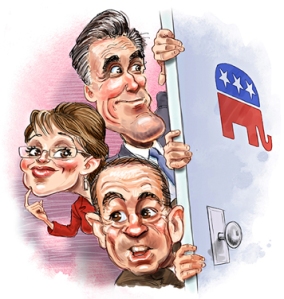I’ll tell you why that’s a good thing
Last week, President Obama’s approval rating slipped below 50 percent in the Gallup poll for the first time since he took office, making him the third-fastest president to fall below that bar since World War II. Ford did it in his third month, Clinton in his fourth, and Reagan in his tenth. I challenge anyone to argue that these men were unpopular presidents.
Long term perspectives were seldom considered by our reactionary media this week as pundits and commentators responded to Obama’s falling numbers. Some fated him to a failed presidency. Another argued that his numbers will “make re-election an uphill struggle.” Susan Page of USA Today reported that others are still willing to give Obama some time to deliver on the promises he made from the campaign trail, but “not too much more.”
Only one article that I came across seemed to get it right; Domenico Montanaro, NBC News political reporter, had this to say:
“Three, taking George W. Bush out of the equation due to 9/11, every president who has ended up winning re-election since 1980 saw his approval rating drop below 50% in his first year. Moral of the story: If your goal is to get re-elected, it’s better to have your political struggles early (Clinton, Reagan) rather than later (Bush 41). Kind of like a college football season, right? Better to lose early than late. So be careful what you read into what Obama’s approval rating right now means for his presidency. There’s really no correlation between how quickly a president’s poll numbers drop and the overall success of his presidency.”
I would have to take issue with Montanaro on one component of his argument. He proposes that there is no correlation between dropping poll numbers and presidential success, but I would argue that dropping poll numbers early in a presidency foretell future success. Seems to defy logic, right? I’ll explain.
If at first you don’t succeed, be sure to fail
Clinton and Reagan are good examples to use, especially since they represent opposite political ideologies. When Reagan assumed office, he shocked the political system by powering through his Republican agenda and overhauling the financial system all within his first year. His popularity took a hit at first, but change, especially drastic change, is a taste acquired over time.
Clinton provoked a similar stir when he signed the Family Medical Leave Act of 1993 and adopted the “don’t ask, don’t tell” policy during his first year in office. His numbers fell too, but rebounded once people realized he was getting things done. These significant government reforms made people uneasy at first, which explains both men’s fallen poll numbers. Both resurged, however, when the public realized these presidents were willing to act and actively address the problems facing our country.
Nobody trusts a rookie to catch the ball
Don’t confuse long-term action with inaction. Too many critics are blasting Obama for sitting on his hands and doing nothing. This is simply not true. Since taking office, Obama has:
- Pushed relentlessly for the adoption of landmark health care legislation even in face of almost unanimous Republican opposition in both houses of Congress and resistance from Blue Dog Democrats as well
- Banned the use of “harsh interrogation,” and ordered the closing of the Guantánamo Bay Prison
- Repealed Bush’s environmental legislation that re-allowed industrial plants to pollute waters with previously banned toxins, among other things
- Signed the $787 billion dollar stimulus bill
- Announced American withdrawal from Iraq
- Repealed bans put in place by Bush that disallowed federal funding for stem-cell research
- Introduced the incredibly successful “Cash for Clunkers” and “First-Time Homeowners” rebates that economists are crediting as having helped facilitate our economic recovery
Take a deep breath, relax… and ignore O’Reilly
These are just a few of the more notable things Obama has done in his eight months in office, but you rarely see them mentioned in news stories. That’s because Fox News is too busy covering the developing “bow-gate” scandal and O’Reilly is seriously contemplating whether or not Obama is Lucifer with Lou Dobbs.
Good public relations in the presidency require that you have a product to promote. In order to have something to promote, you have to introduce social and governmental reform, and that change agitates the public. This unease will pass, and eventually we will realize that Obama’s strategy is right on point. Considering the fact that Bush’s approval rating fell from 91 percent in his first year to 22 percent when he left office, I think a slow start really is best.









